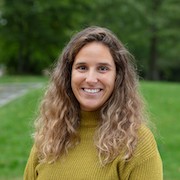
The proposed project is focused on the use of Raman spectroscopy as a key tool in the frame of Space Exploration. The upcoming years will be very challenging in the special case of Martian exploration considering the NASA and ESA missions so-called MARS2020 and ExoMars2022, respectively. These missions include rovers equipped with different analytical instruments. Among them, several Raman spectrometers are among the scientific payload capabilities for the first time on the surface of Mars. Therefore, a complete Raman study on Martian analogues developed at Aarhus University is proposed. For this aim, innovative procedures such as SERS and laser combination (in collaboration with Univ. of the Basque Country) will be developed in order to improve the existing methodologies for biosignatures identification. Moreover, one of the main aims in the Scientific Groups of both missions is to start performing collaborative science among the different equipments onboard the rovers. In this way, this project pretends to contribute, as well, to the collaborative science by performing supporting analyses by Raman spectroscopy and MOMA instrument (flight-like MOMA Lab at MPI) always analyzing the same Martian analogues developed by Prof. Finster and collaborators at Aarhus University.
Project title:
Understanding Raman spectroscopy as a key tool in future Mars exploration missions (MARS2020 and EXOMARS2022) for the search of biosignatures
Area of research:
Planetary sciences, astrobiogeochemistry, spectroscopy, environmental analytical chemistry
Fellowship period:
Oct 2021 - Feb 2022
Fellowship type:
AIAS-COFUND Marie Skłodowska-Curie fellow

This fellowship has received funding from the European Union’s Horizon 2020 research and innovation programme under the Marie Skłodowska-Curie grant agreement No 754513 and The Aarhus University Research Foundation.
